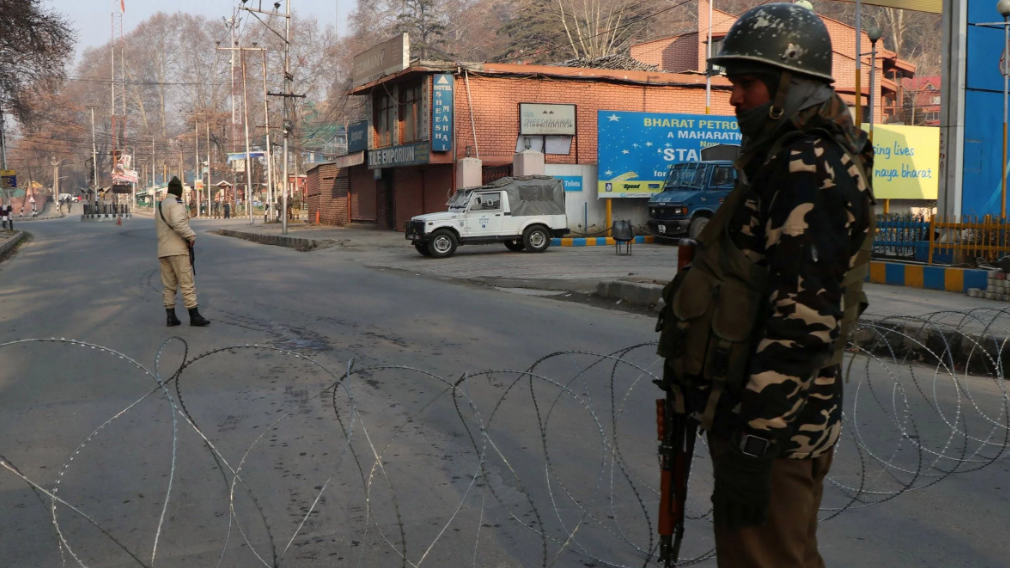Due to the severe restrictions in the valley, many patients and doctors aren’t able to reach the clinics and hospitals. As a result, several doctors have started attending to the patients at their home

Even though restrictions imposed in Kashmir since the abrogation of Article 370 have been relaxed, the streets of continue to be occupied by the government forces who have established barricades and checkpoints after every 300 to 500 metres. These checkpoints are not only affecting normal people but are pushing patients to the wall.
Being confined to their homes for the past 14 days in the valley, many patients and doctors aren’t able to reach the clinics and hospitals. As a result, several doctors have started attending to the patients at their home.
One such case is of Dr Sajad (name changed). He is the only doctor within a radius 4 kms, and has been receiving patients at his home. Initially, the flow of patients was low, but as the news has spread, people have been turning up in large numbers.
Sajad believes that people should not be restricted from reaching the hospitals in case of a medical emergency. Right now, because of the curfew, people have no means of reaching the hospitals even in case of an emergency.
On the occasion of Eid-ul-Adha on August 12, which most people of Kashmir celebrated under an extreme lockdown, Dr. Sajad received many cases of food poisoning at his home. There were many whose condition were so bad that he had to install a drip and have them stay at his own home to monitor them.
“I came across many people who didn’t have money, so I decided to do their treatment without any charges. They are my own people. I have kept the doors open for the people so that they know that they can knock at my door in the middle of the night,” he said.
The day when people across the world were celebrating Eid, Sajad received a few pellet victims, some of them had pellets in their eyelids and on their back, fired at by the government forces. “There were kids as young as 9 years old. I tried my best to help them out. I would treat that sort of emergency,” Sajad said.
Most pellet victims who receive minor injuries try to avoid going to the hospital and instead get them treated or removed locally which he believes is not a very good idea. “People go to local sources because the government is on the lookout for these people in the hospitals and if found, they could be detained. Due to this fear of detention, they avoid going to the hospitals,” he says.
Previously in 2016, there have been cases where pellets victims were stopped by the government forces on their way to the hospitals and were beaten up and detained.
Dr. Sajad says that it is dangerous to remove pellets at local medical shops that aren’t well equipped to do the job, it can lead to serious infections.
“There are many people who lost their eye sight by refusing to go to the hospitals due to the fear of detention. Their eye sight could have been saved if they would have received treatment on time,” he said. But there are no other options left for these people.
Apart from pellet victims, other patients have started showing up at Sajad’s home too. Due to the intensified restrictions on August 15, more and more people approached him as all the main entrances were blocked by the government forces.
One of the patients had Herpes Zoster. Herpes zoster is a viral infection that occurs with reactivation of varicella-zoster virus. It is usually a painful but self-limited dermatomal rash, which requires treatment by antiviral medications within 72 hours of symptom onset.
“It is a very painful condition. The atient’s companions were crying as they were helpless and were unable to get any medical assistance,” recalls Sajad.
Despite having a staff of six people at a government Primary Health Centre, where Sajad is posted, only he and one of his male colleagues have able to reach there since August 5.
After working at the health centre for almost 8 hours, Sajad remains on duty even after coming home. On an average, he attends to about 75 patients at his home everyday and provides free treatment to them.
While talking about the situation of the hospital, he said, “Right now our hospitals aren’t fully prepared to face any sort of emergencies, there is no proper backup of medicines and other important supplies.”
“We try our best to help people including acute cases or people with different sorts of injuries. But when things are more complicated, we refer them to the main hospital. But now, even in the referral case , they face a lot of problems because ambulances are also being stopped,” he said.
First published in Newsclick.
Disclaimer: The views expressed in this article are the writer’s own, and do not necessarily represent the views of the Indian Writers’ Forum.